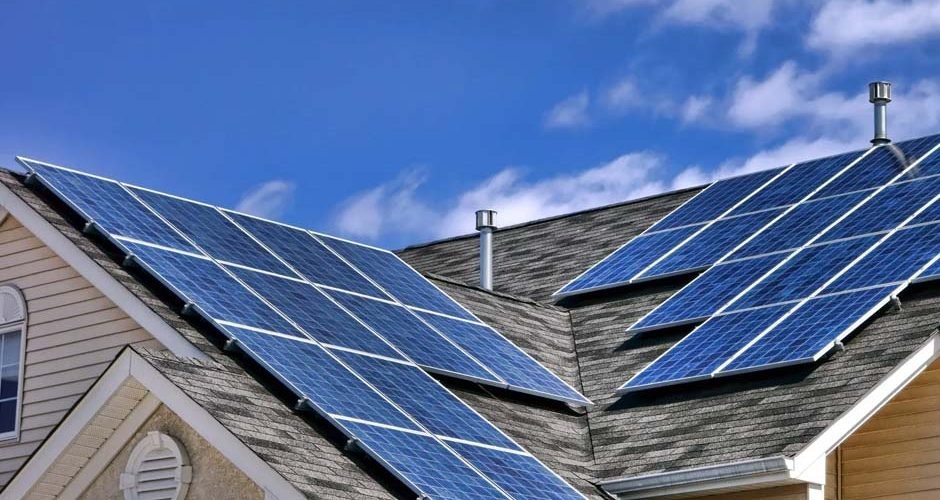As the world faces the increasing urgency of transitioning to renewable energy sources, incentives that encourage the adoption of clean technologies play a pivotal role. Maryland has taken proactive measures to promote solar power utilization among its residents and businesses in pursuing sustainable energy solutions. One of the significant initiatives in this regard is the Maryland Solar Tax Credit. This policy stimulates the growth of solar installations and contributes to the state’s commitment to reducing carbon emissions and advancing its renewable energy goals.
Table of Contents
Understanding the Maryland Solar Tax Credit
The Maryland Solar Tax Credit is a financial incentive designed to support individuals and businesses in installing solar energy systems on their properties. It supplies a tax credit to eligible participants based on a percentage of the qualified costs associated with the solar installation. This credit directly diminishes the recipient’s tax liability, effectively making the transition to solar energy more financially viable. The program’s primary aim is to accelerate the adoption of solar technologies, enabling Maryland to diversify its energy portfolio and mitigate the environmental impacts of conventional energy sources.
Eligibility and Qualifications
To access the advantages of the Maryland Solar Tax Credit, individuals and businesses must meet certain criteria and adhere to specific guidelines. The solar installation must be located in Maryland and be used for residential, commercial, or industrial purposes. Additionally, the solar energy system must be new and not previously utilized or installed elsewhere. Eligible solar technologies include solar photovoltaic (PV) panels and solar water heating systems. While individual participants have no income limits, businesses must have a net worth less than $5 million to qualify.
Financial Benefits and Compensation
The Maryland Solar Tax Credit proposes participants a credit equal to a percentage of the total qualified solar energy system installation costs. The credit amount is calculated based on factors such as the type of system and the installation date. For residential properties, the credit is capped at $1,000 per installation, while commercial properties can acquire a credit of up to $250,000. This financial incentive significantly reduces the upfront costs of installing solar systems, making them more accessible to a broader range of individuals and businesses.
Impact on Renewable Energy Adoption
The introduction of the Maryland Solar Tax Credit has substantially impacted the adoption of solar energy systems across the state. By providing a tangible financial incentive, the policy encourages residents and businesses to consider the benefits of solar power. The credit contributes to lower energy bills and aligns with the state’s broader environmental goals, helping to reduce greenhouse gas emissions and reliance on non-renewable energy sources. As a result, Maryland has witnessed a surge in solar installations, fostering a greener and more sustainable energy landscape.
Alignment with State Goals
Maryland’s commitment to clean energy is evident through its adoption of renewable portfolio standards (RPS) and greenhouse gas reduction targets. The Maryland Solar Tax Credit aligns seamlessly with these goals by incentivizing individuals and businesses to invest in solar technologies. By supporting the growth of solar installations, the state enhances its energy security, reduces its carbon footprint, and positions itself as a leader in the renewable energy sector. This synergy between policy and environmental objectives underscores the state’s dedication to a more sustainable future.
Collaboration and Economic Growth
The Maryland Solar Tax Credit benefits the environment and stimulates economic growth and collaboration. The increased demand for solar installations creates job opportunities in the clean energy sector, ranging from manufacturing and installation to maintenance and support services. Local solar companies, contractors, and technicians benefit from the growing market, fostering innovation and entrepreneurship. Moreover, the credit encourages collaboration between the public and private sectors, as businesses and homeowners partner with solar professionals to navigate the installation process.
Long-Term Savings and Energy Independence
Beyond the immediate financial benefits, the Maryland Solar Tax Credit sets the stage for long-term savings and energy independence. Solar installations generate clean electricity from a renewable source, reducing reliance on fossil fuels and lowering energy bills over time. The credit jumpstarts a journey toward energy self-sufficiency, where individuals and businesses produce a significant portion of their energy needs from their solar systems. This shift contributes to individual cost savings and bolsters the state’s resilience against energy price volatility.
Staying Informed and Seizing Opportunities
As with any incentive program, staying informed about the Maryland Solar Tax Credit’s details and deadlines is essential. The program’s popularity and its cap on available credits underscore the importance of promptly securing the benefits. Individuals and businesses considering solar installations should explore the program’s specifics, consult solar professionals for guidance, and ensure compliance with all requirements to maximize the advantages the tax credit offers.
The Maryland Solar Tax Credit shines as a beacon of support for clean energy adoption within the state. By providing a financial incentive to invest in solar energy systems, the policy reduces the upfront costs of installations and contributes to environmental sustainability and economic growth. As Maryland continues its journey toward a greener energy landscape, the solar tax credit is a model for how policy measures can drive tangible change. By leveraging this incentive, individuals and businesses can contribute to a more sustainable future while reaping the benefits of renewable energy and cost savings. Understanding Maryland solar panel installation costs is essential for anyone considering transitioning to renewable energy sources.





